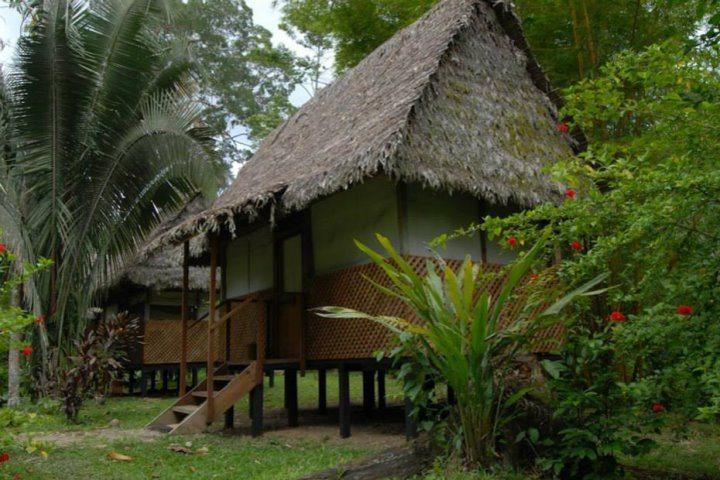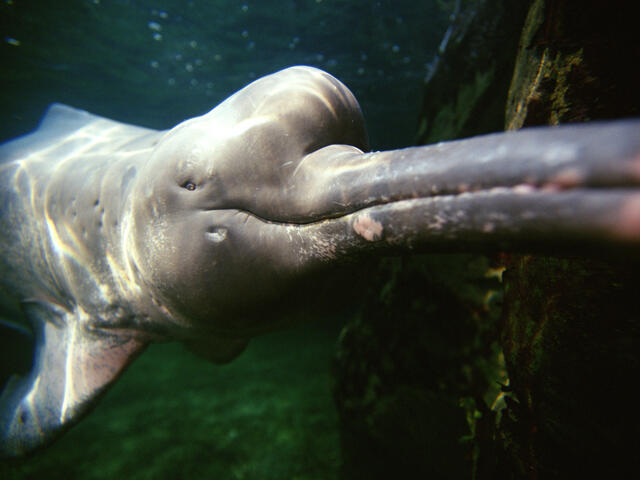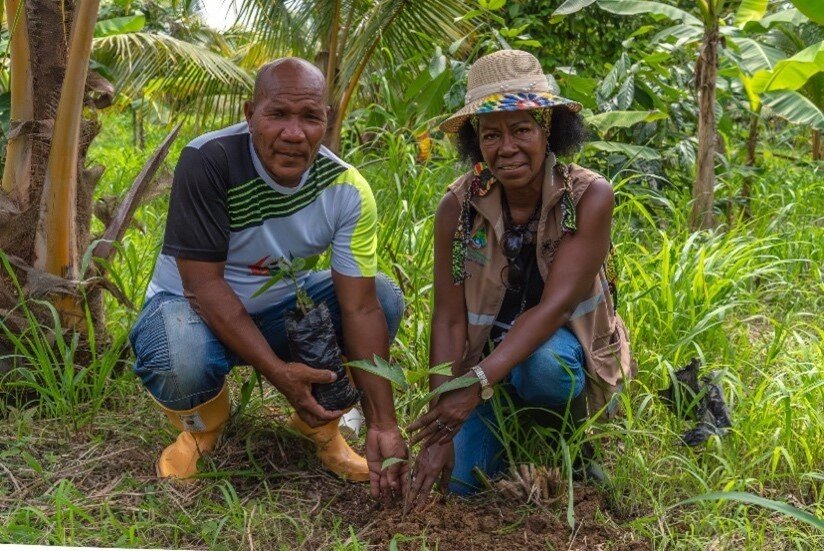My Amazon Awakening: Citizen Science at the Anaconda Eco-Lodge

Miami might be my home, but the Amazon has always been calling to me. As a marine biologist with a passion for sustainable travel and wildlife conservation, I'm constantly searching for experiences that allow me to contribute to something bigger. That's what led me to the Anaconda Eco-Lodge (airbnb.com/peru-amazon-eco-lodge), a floating haven on the Amazon River, 80 km upriver from Iquitos, Peru. And let me tell you, it was an experience that exceeded all expectations.
Constructed primarily of sustainably harvested bamboo and reclaimed wood, and powered by solar panels, the lodge is a testament to responsible travel. But what truly set it apart was the opportunity to participate in real citizen science, contributing directly to the conservation of this incredible ecosystem. My 5-day/4-night stay was packed with adventure, learning, and a profound connection to the Amazon. I came to observe; I left feeling like a guardian. If you’re interested in eco-tourism, sustainable travel, or wildlife conservation in the heart of the Amazon rainforest, keep reading!
Waking Up with the Dolphins: Population Surveys on the Amazon
The sounds of the Amazon are unlike anything I’ve ever experienced. The guttural roars of howler monkeys echoed through the pre-dawn mist, mingling with the complex melodies of exotic birds. This was my alarm clock each morning as I prepared for the river dolphin conservation project. We'd head out on the river before sunrise with a local research team affiliated with the NGO, Amazonian Waters, dedicated to long-term dolphin population monitoring.

Our mission was to conduct a daily river dolphin population survey. Equipped with hydrophones, GPS devices, and cameras, we set out to document the elusive creatures. Using the hydrophones, we listened intently for the distinctive clicks and whistles of the dolphins, while simultaneously recording their locations with GPS. The early morning light was incredibly dim, forcing me to crank up the ISO on my camera to 3200. It was challenging, but the reward was worth it!
The real thrill came from spotting the pink river dolphins (Inia geoffrensis). These magnificent creatures, unique to the Amazon, are a sight to behold. We used photographic identification techniques, carefully documenting the unique markings on their dorsal fins. This allows researchers to track individual dolphins over time and monitor their movements and behavior. It was exhilarating to know that the data I was collecting would contribute to the long-term understanding and conservation of these amazing animals.
Diving Deeper: Water Quality Testing and the Health of the Amazon
Beyond the charismatic dolphins, the health of the entire river ecosystem is paramount. One afternoon, I joined the team for weekly water quality testing at different points along the river. Wading into the murky water, the smell of river sediment clinging to the air, we used a LaMotte water testing kit to measure several crucial indicators.

We meticulously measured pH levels, turbidity, dissolved oxygen, and nitrate/phosphate concentrations. This data is vital for assessing the impact of agricultural runoff and gold mining activities on the river ecosystem. It’s a stark reminder that even in this remote paradise, human activities can have devastating consequences. Understanding these impacts is the first step towards mitigating them and protecting the biodiversity of the Amazon.
Planting the Future: Reforestation with the San Rafael Community
Sustainable travel isn’t just about minimizing your impact; it's about actively contributing to the well-being of the environment and the local communities. The Anaconda Eco-Lodge embodies this philosophy through its partnership with the indigenous community of San Rafael. One of the most rewarding experiences of my stay was participating in a reforestation project organized in collaboration with the community.
We spent a morning planting native trees – ceiba, mahogany, and capirona – along the degraded riverbanks. The rich, damp soil felt alive beneath my fingers as I carefully placed each seedling in its new home. The combined symphony of cicadas and parrots in the canopy created an unforgettable atmosphere. This project aims to restore vital habitat for wildlife and stabilize the riverbanks, preventing further erosion. The Eco-Lodge is committed to sourcing seedlings from the community-run nursery, ensuring that the benefits of community-based tourism are shared equitably.
A Taste of Tradition: Connecting with the Community of San Rafael
The connection to the community of San Rafael is deeply woven into the fabric of the Anaconda Eco-Lodge. The lodge employs local guides and cooks, purchases supplies from local vendors, and contributes a percentage of its profits to community development projects, such as the construction of a new schoolhouse. This dedication to responsible travel creates a truly enriching experience for both visitors and the local people.
One evening, I had the privilege of sharing a traditional meal of paiche (Arapaima), cooked in fragrant bijao leaves, with the community elders. The warmth and hospitality I experienced were overwhelming. It was a humbling reminder that genuine connection and cultural exchange are essential components of ethical wildlife tourism.
Comfort in the Canopy: The Eco-Lodge Experience
Back at the lodge, comfort and sustainability seamlessly coexist. My private cabin, built from bamboo and reclaimed wood, was simple yet elegant. The mosquito nets provided a welcome respite from the jungle insects, while the solar-powered lighting and composting toilet were a testament to the lodge's commitment to minimizing its environmental footprint. At night, the cool mist rising from the river created a magical atmosphere, while the smoky aroma of wood fires filled the air.
Evenings were spent on the covered observation deck, captivated by the vibrant colors of macaws flying overhead against the backdrop of a fiery sunset. It was the perfect place to reflect on the day’s adventures and appreciate the beauty of the Amazon.
Leaving a Legacy: Support Sustainable Tourism in the Amazon
My time at the Anaconda Eco-Lodge was more than just a vacation; it was a transformative experience. I left with a deeper understanding of the Amazon ecosystem, a profound respect for the indigenous community of San Rafael, and a renewed commitment to eco-tourism and citizen science.
If you're seeking a truly meaningful travel experience, I urge you to consider booking a stay at the Anaconda Eco-Lodge. By supporting community-based tourism and contributing to conservation efforts, you can help protect this incredible place for future generations.
Here’s how you can get involved:
- Book your stay: Visit airbnb.com/peru-amazon-eco-lodge to experience the magic of the Anaconda Eco-Lodge firsthand.
- Learn more: Visit the Amazonian Waters NGO to discover more about their vital research on river dolphin conservation.
- Donate: Support reforestation projects in the Amazon rainforest to help restore degraded habitats and combat climate change.
The Amazon is calling. Will you answer? I promise you, it's an adventure you won't regret.